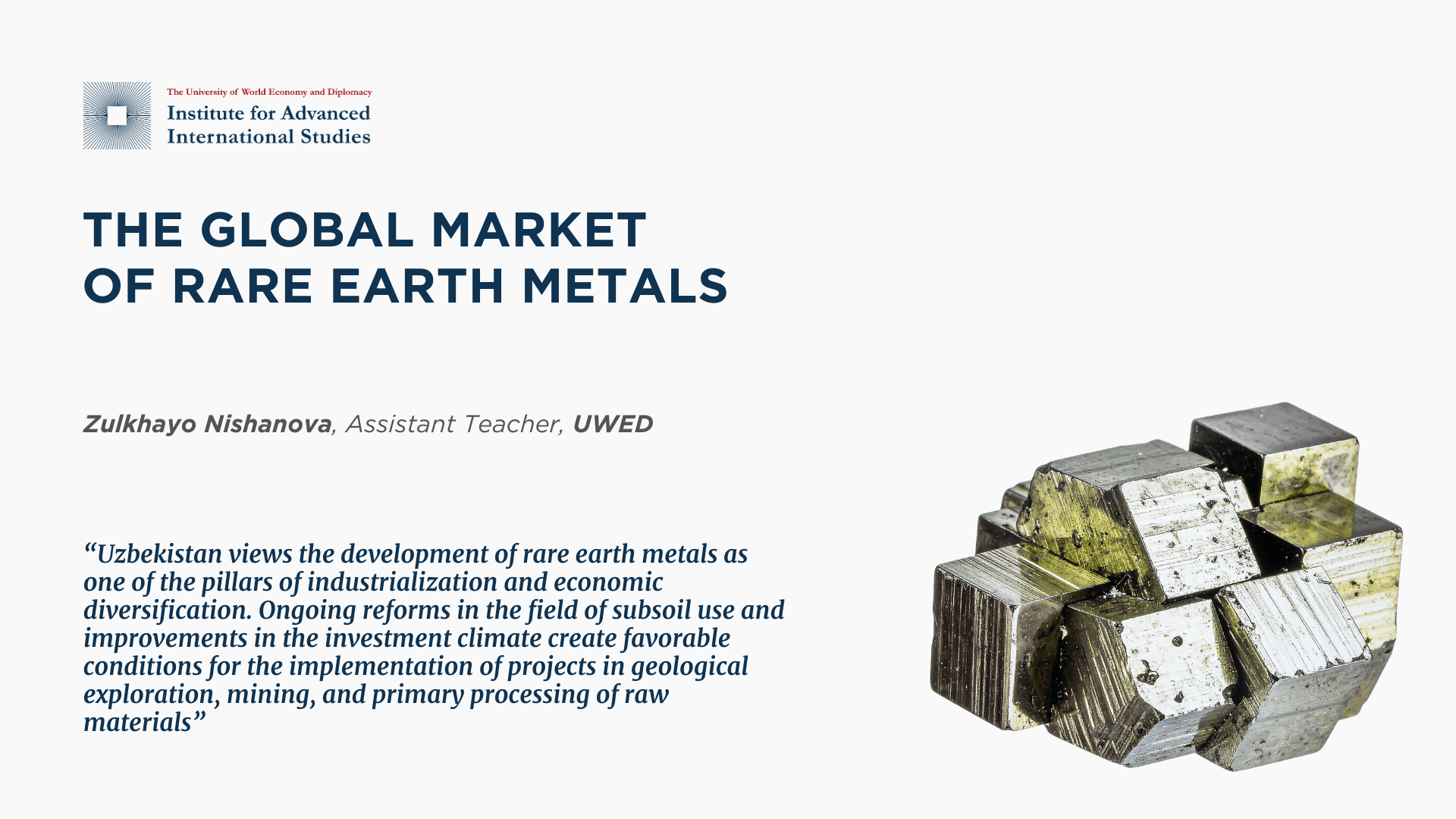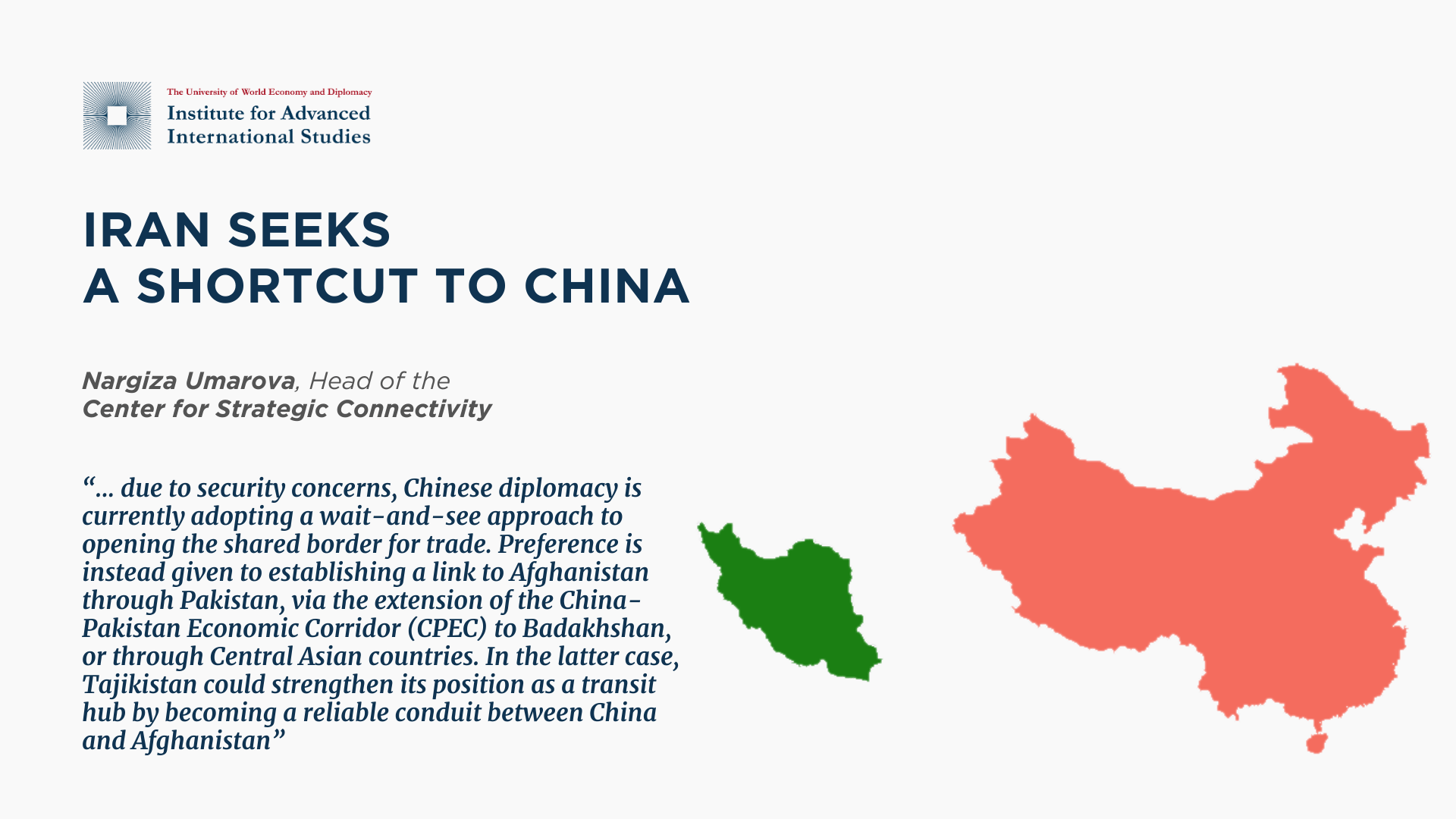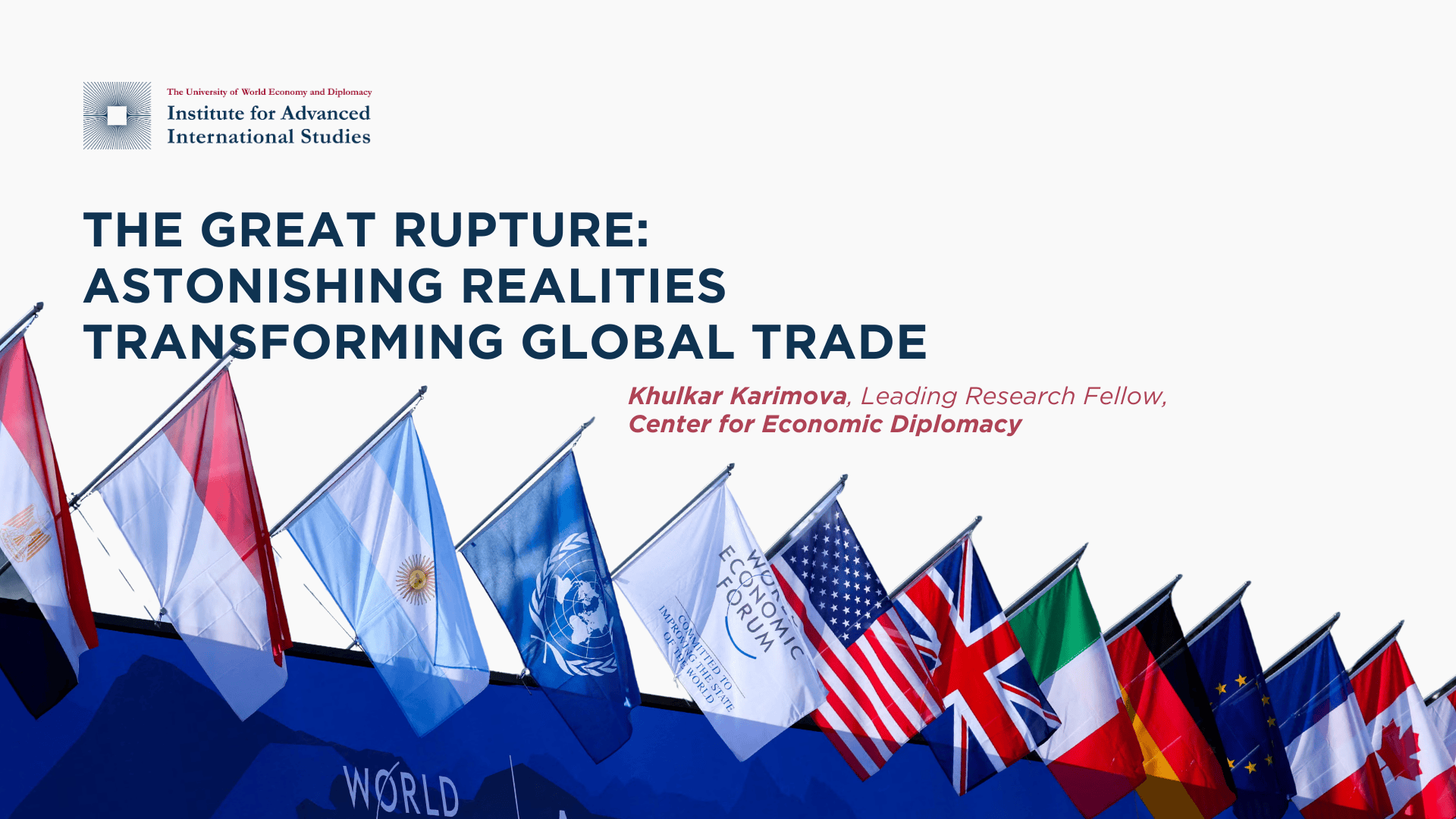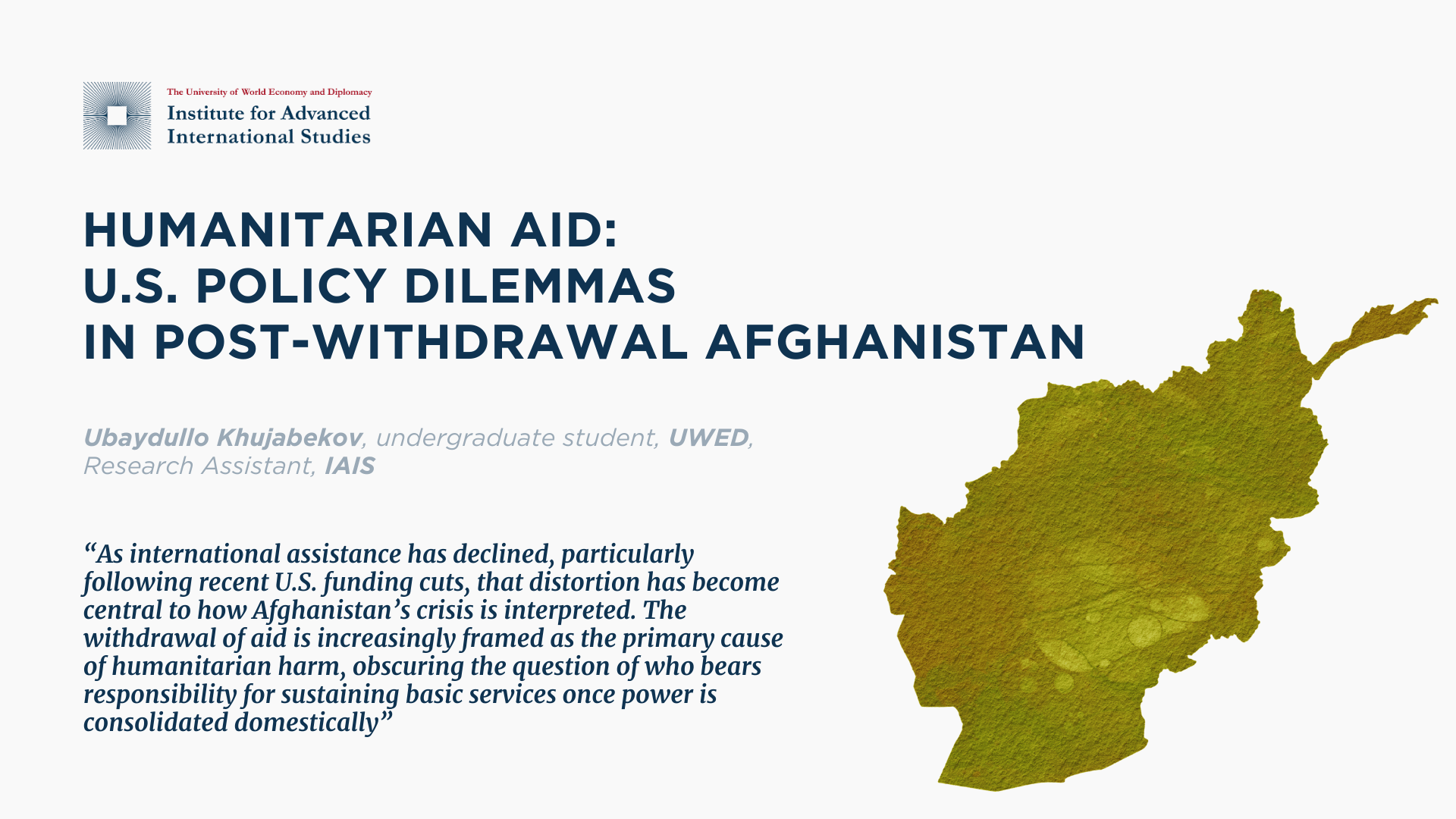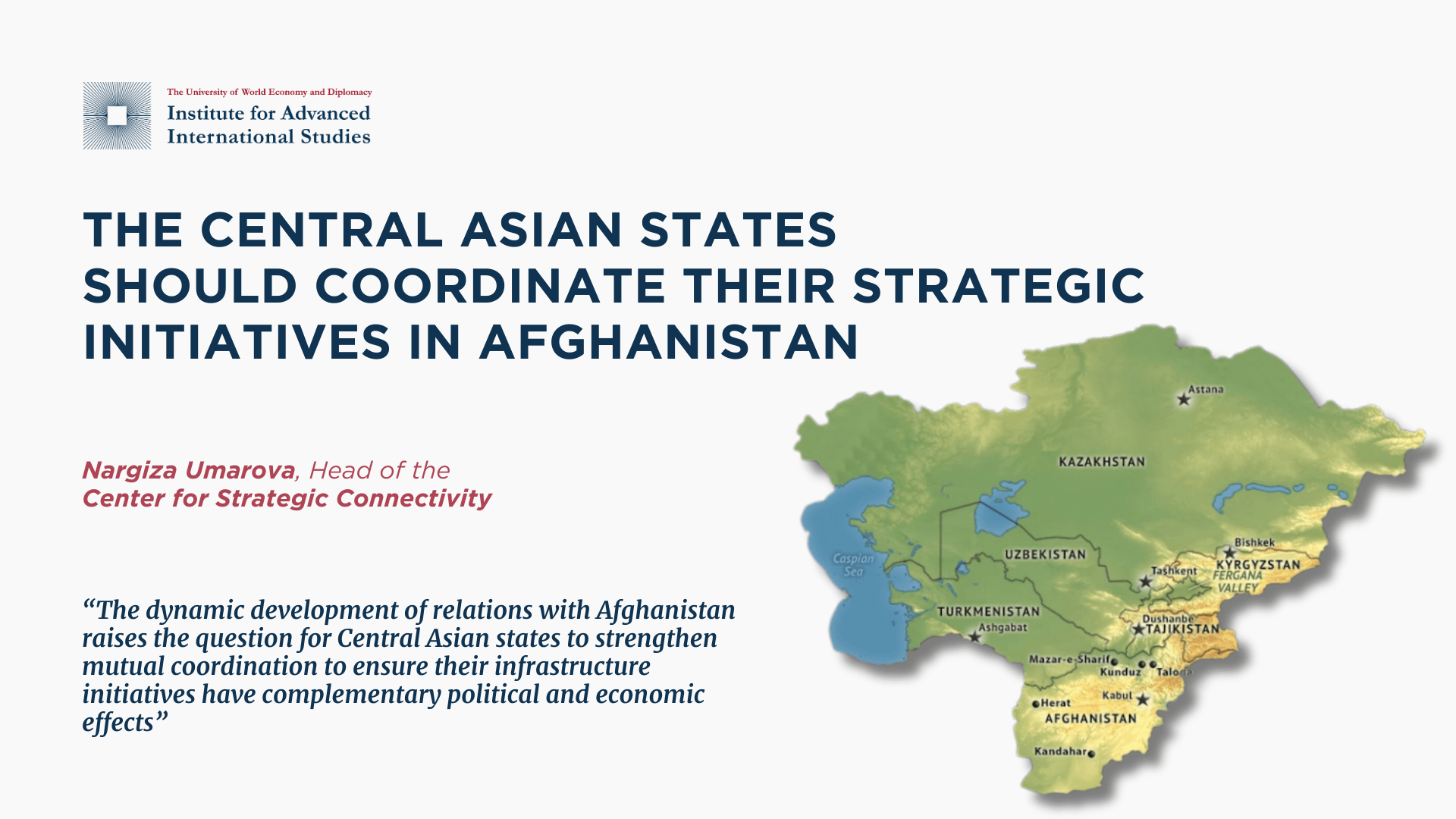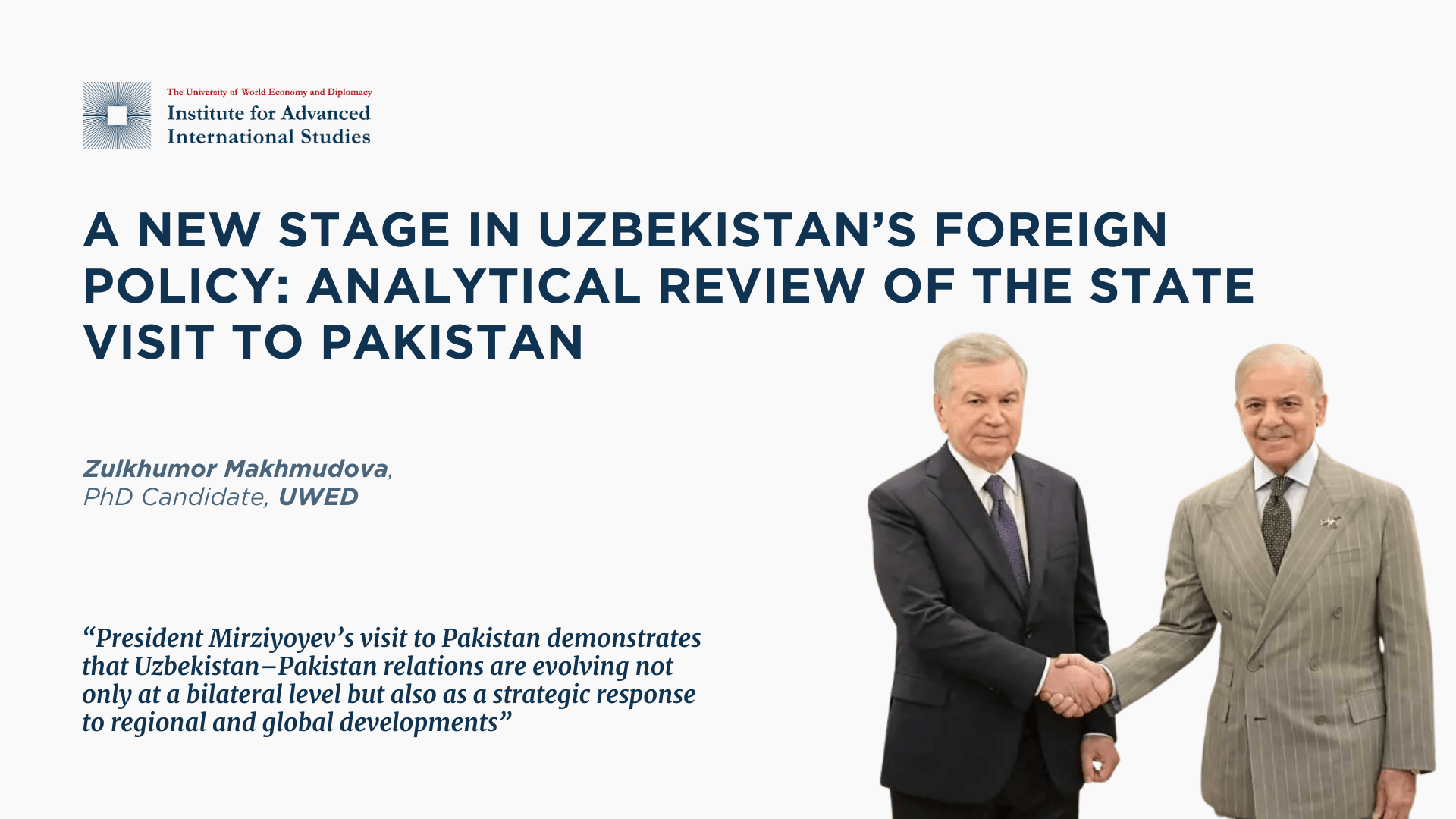After the withdrawal of U.S. military forces from Afghanistan, Washington confronted a complex and enduring dilemma: how to provide humanitarian assistance to a population in acute need without conferring political legitimacy or material benefit upon the Taliban, now governing as the Islamic Emirate of Afghanistan (IEA). Since August 2021, the United States has attempted to navigate this challenge by relying on international organizations and nongovernmental actors to deliver aid, while simultaneously maintaining sanctions on Taliban leadership and restricting direct engagement with de facto authorities. This balancing act has increasingly shaped U.S. legislative, diplomatic, and humanitarian policy toward Afghanistan.
Central to this approach is the effort to prevent U.S. taxpayer funds from being diverted – directly or indirectly – to the Taliban. The No Tax Dollars for Terrorists Act represents the most recent and formalized expression of this objective. Introduced into Congress on January 23, 2025, the bill requires the Department of State to develop and implement a strategy aimed at discouraging foreign governments, international organizations, and nongovernmental organizations from providing financial or material support to the Taliban, including through the misuse of U.S.-funded foreign assistance. Although still in the early stages of the legislative process, the bill signals a tightening of U.S. oversight and a potential recalibration of American engagement in Afghanistan.
The legislation aligns with broader efforts to audit and reassess U.S. foreign aid following the withdrawal. A 2024 audit conducted by the Special Inspector General for Afghanistan Reconstruction (SIGAR) identified significant weaknesses in the oversight of approximately $2.9 billion in U.S. assistance delivered after 2021. The report stated: “… remain concerned that the Department of State and USAID lack visibility into how funds are expended once they are transferred to international organizations, and that these funds may not be used as intended.” While some of these claims remain contested, the findings reinforced concerns within Congress that humanitarian channels were vulnerable to exploitation in a context where the Taliban exercised territorial and administrative control.
Supporters of the No Tax Dollars for Terrorists Act frame the legislation not only as a fiscal safeguard but as a moral obligation. Senate Foreign Relations Committee Chairman Jim Risch has emphasized the human cost of the two-decade war, noting that more than 2,000 U.S. service members were killed and over 20,000 wounded. In this context, he characterized any transfer of U.S. funds to the IEA as “a betrayal of the victims of the war,” arguing that preventing such outcomes is a matter of accountability to both American taxpayers and those who served in Afghanistan. The bill was introduced by Senator Tim Sheehy and co-sponsored by Senators Bill Hagerty, Tommy Tuberville, and Steve Daines, all of whom have advocated a stricter approach to foreign assistance that could benefit the Taliban.
The human consequences of these policy shifts are increasingly visible. A recent report by The New York Times argues that the suspension of U.S. humanitarian assistance has had serious and damaging effects on the daily lives of ordinary Afghans. Drawing on field research conducted in five provinces, the report documents how the halt in American funding disrupted programs that many families depended on for food security, healthcare, and basic survival. According to the findings, low-income households, internally displaced persons, and communities reliant on emergency assistance have been disproportionately affected.
The reduction in funding has also constrained the capacity of humanitarian organizations operating on the ground. Some programs have been forced to scale down, while others have ceased operations entirely, increasing pressure on local communities already grappling with unemployment, rising prices, and prolonged economic decline. In the absence of sufficient alternative funding, the withdrawal of U.S. support has compounded existing vulnerabilities and intensified poverty in both urban and rural areas.
These developments highlight a deeper structural problem underlying Afghanistan’s post-withdrawal crisis. For more than two decades, international assistance functioned not merely as emergency relief, but as a substitute for core state responsibilities, financing and delivering services such as healthcare, nutrition, and social protection. When U.S. and international aid was reduced, the effects were immediate and severe, revealing the extent to which essential services remained dependent on external actors.
As a result, debates over the No Tax Dollars for Terrorists Act and U.S. funding decisions are not only about aid diversion or sanctions compliance. They reflect a broader unresolved tension between humanitarian imperatives and political accountability. It seems that responsibility for essential services in Afghanistan was diffused across international actors, while authority within the country evolved separately. Successes were attributed to partnership; failures were explained through insecurity, access constraints, or funding shortfalls, rather than deficiencies in governance. Over time, the boundary between humanitarian support and functional substitution blurred.
As international assistance has declined, particularly following recent U.S. funding cuts, that distortion has become central to how Afghanistan’s crisis is interpreted. The withdrawal of aid is increasingly framed as the primary cause of humanitarian harm, obscuring the question of who bears responsibility for sustaining basic services once power is consolidated domestically. This framing risks conflating the prevention of suffering with the assumption of permanent obligation, transforming humanitarian support from a tool of relief into a substitute for governance.
The current debate over aid, economic self-reliance, and humanitarian collapse cannot be understood without confronting this unresolved dependency. Afghanistan’s crisis is not occurring in a vacuum of authority. It is unfolding under a governing system that exercises control over territory, labor, access, and social policy, and therefore shapes humanitarian outcomes directly. Any assessment of aid withdrawal must therefore account not only for donor decisions, but for governing choices made within Afghanistan after the transition of power.
* The Institute for Advanced International Studies (IAIS) does not take institutional positions on any issues; the views represented herein are those of the author(s) and do not necessarily reflect the views of the IAIS.

